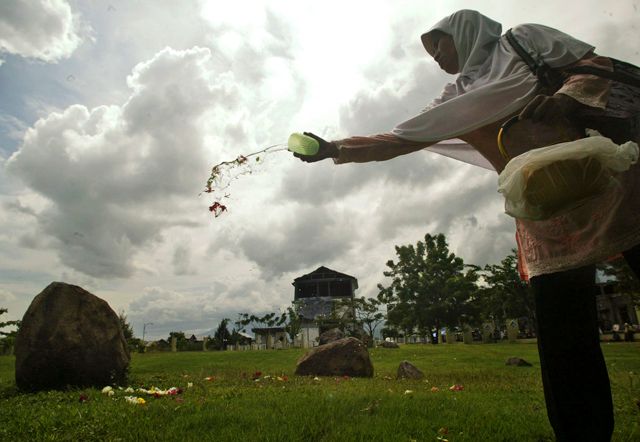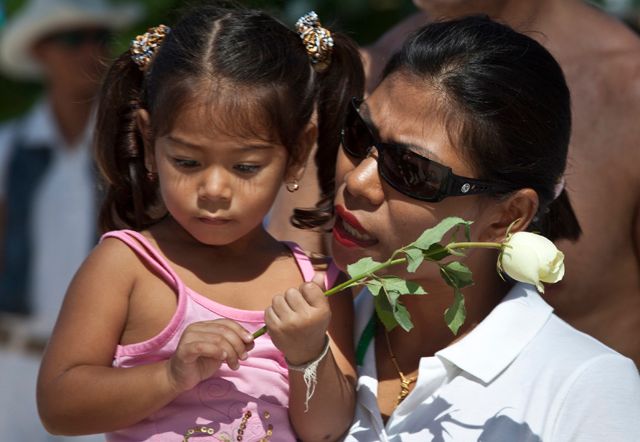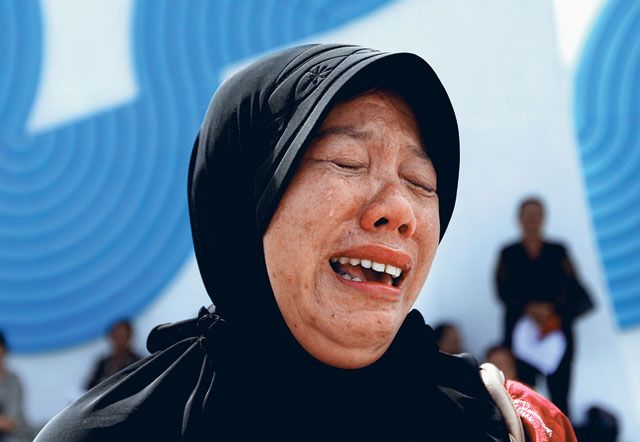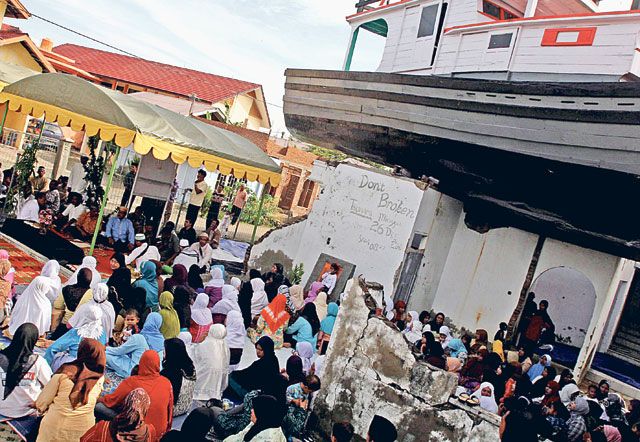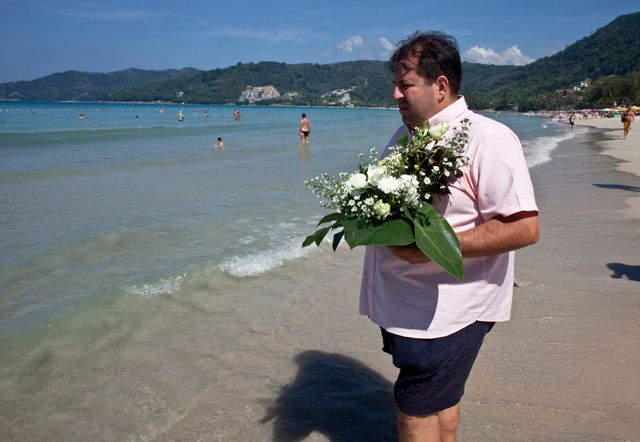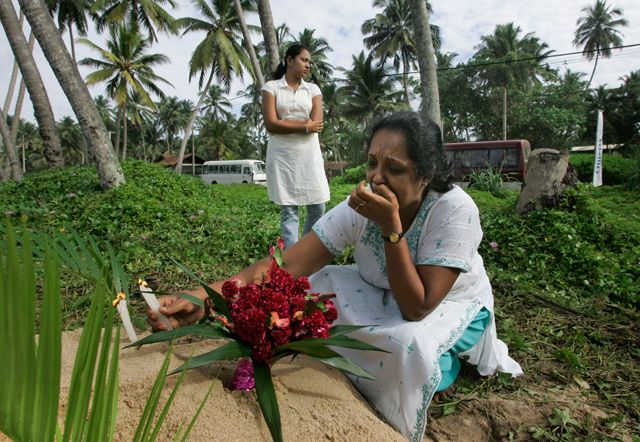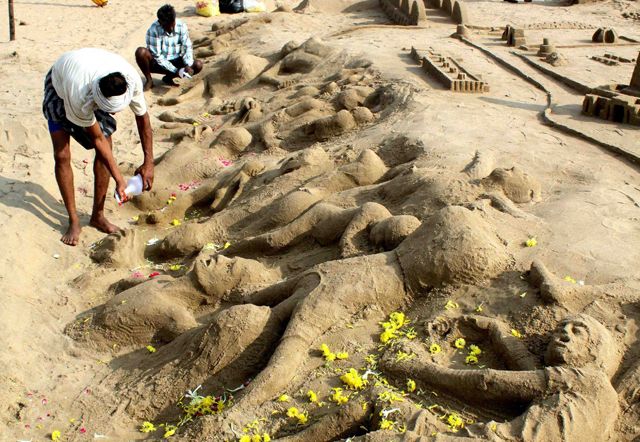Phuket: Five years after a massive tsunami triggered deadly tidal waves across Asia, low-key ceremonies on Saturday marked the solemn anniversary with prayers and moments of silence for the 230,000 people killed.
The devastating December 26, 2004, tsunami struck a dozen countries around the Indian Ocean rim.
It eradicated entire coastal communities, decimated families and crashed over tourist-filled beaches the morning after Christmas. Survivors waded through a horror show of corpse-filled waters.
Survivors were among the hundreds of people who returned to the white-sand beaches in southern Thailand on Saturday to recall one of the worst natural disasters of modern times.
A moment of silence was observed on Phuket's Patong Beach, a popular strip of hotels and restaurants, to mark the moment the tsunami struck.
Dozens of Buddhist monks in bright orange robes chanted prayers. Onlookers wept and embraced.
Giorgio Capriccioli, an Italian who lives on Phuket, carried a bouquet of white flowers into the ocean.
He waded knee-deep in water that five years ago was clogged with corpses and cast the flowers adrift to honor the memory of two friends. His wife owns several beach-front shops but decided not to go to work the morning the tsunami struck.
"My wife would be dead if it weren't for the fact that she were pregnant and didn't go to work that day," he said at a ceremony that also attracted sun-drenched tourists in skimpy swimsuits, as well as Thai residents.
The ceremonies on Phuket were to culminate in the evening with candle-lighting ceremonies and the release of hundreds of light-filled lanterns into the sky.
Memorial services were also planned elsewhere in Asia.
In the Indonesian province of Aceh on Sumatra island, which was hardest-hit by the disaster, some mosques held prayer services on Friday.
The tsunami was sparked by an 9.2-magnitude underwater earthquake off Sumatra - the mightiest earthquake in 40 years.
More than 8,000 Thais and foreign vacationers perished in Thailand. Coastal communities in Sri Lanka and India lost some 48,000 people between them.
Indonesia's loss of about 167,000 accounted for well more than half of the total death toll.


